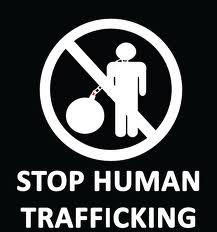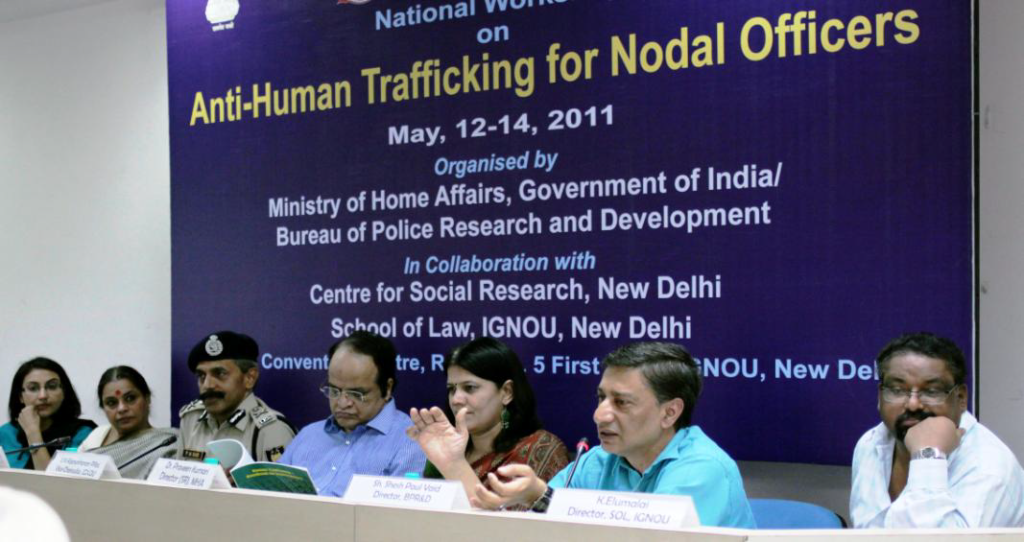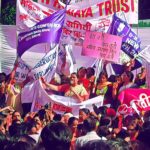“I arrived at JFK with four other women and a man, and we were divided into two groups. Johnny took all my documents, including my passport, and led me to his car with two of the other women.
That was when things started to get strange.”
This is what Shandra Woworuntu, a sex-trafficking victim and survivor told BBC in an interview. Shandra Woworuntu was from Indonesia who lost a well-paid job as a result of Asian financial crisis. In dire need of money and employment, Shandra went to the US to work in the hospitality sector. But, luck had something else in store for her. In the garb of giving employment to women in the hotel industry, a huge sex-trafficking racket was being run which invited women from different parts of the world through hoax advertisements and communication channels. When the women arrived at the airport, they were taken to different hotels and brothels unknowingly. Some women had been manipulated with time to work as free prostitutes, and others like Shandra were made sex slaves who worked under duress.
Shandra, in her interview to BBC, revealed that she was constantly drugged and forced to have sex with as many customers. However, after months of hellish struggle, Shandra managed to flee from the brothel she was kept in. Shandra complained to the police and helped the other women who were kept as sex slaves. The traffickers of this racket got identified and punished.
Due to Shandra’a impeccable will, she saved herself and many other women like her. However, there are innumerable women like Shandra who are tricked into sex-trafficking and subjected to an unbearable heinous treatment. Many of such women are never able to run away from this ruthless world of sex-trafficking and the count of such women is unknown and endless.
|
Human trafficking has become a commercial business which has confidential networks that are hard to trace. Shandra was one of the few fortunate women who are able to escape, but her example highlights the fact that sex-trafficking rackets are being carried on such a massive level that they have strong contacts in advertising, immigration, hospitality, and so much more.
And this becomes even harder to curb because commercial human trafficking makes billions in profits every year. According to the International Labour Organization (ILO), forced labour alone generates an estimated $150 billion in profits per annum as of 2014. The International Labour Organization also states that about 4.5 million people (mostly women) worldwide are forced into sex trafficking by coercive or abusive means and escape is nearly impossible for them.
|
Reportedly, a complex set of factors like poverty, unemployment, discrimination against women, commercial demand for sex, and globalization are responsible for sex trafficking of women. In most cases, poor and less-educated women are pushed into trafficking as they have limited access to opportunities, or more than often women enter sex trafficking, unaware.
A communication medium of sex trafficking that has emerged in the recent times is the internet.
In today’s world, globalization and the advent of internet are simplifying sex trafficking to a large extent. Reports show that explicit and untraceable sites are facilitating sex trafficking. Then social networking sites are ostensibly used for commercial sex trafficking by traffickers. What is appalling is that under-age girls are the major victims of online sex trafficking.
Centre for social Research was formed with the aim of empowerment of women in our society. Since its establishment in 1983, CSR has worked day and night to reform the society’s outlook towards women.
With the motive of development of women, CSR has taken various measures to mitigate sex-trafficking of women. In 2018, CSR organized a training session with CBI officials on anti-human trafficking. This training was conducted successfully, highlighting the role of police networks in diminishing trafficking of women.
Moreover, CSR’s director, Dr. Ranjana Kumari has served as the Coordinator of the South Asia Network Against Trafficking (SANAT) in Persons.
|
CSR’s other programs like Women’s Skill Development and Social surfing are generating a wave of transformation among women and youth.
CSR’s Centre for Excellence for Women’s Skill Development offers specialized trainings such as- Women’s Security Guard Training, Office Assistant Training and Sports for Girls. These programs are motivating socially immobilized women to learn skills and earn a living so that a poor financial state doesn’t force them into sex trafficking or any other such profession.
#SocialSurfing is another initiative by CSR in association with Facebook, that conducts workshops in institutions to create awareness about the critical effects of social media and safety tools present. This training assists in reducing unsafe practices online by spreading the word about privacy measures on social networks.
So, in a world where human trafficking is on a constant rise, an organization like CSR is trying to help women to lead a safe and empowered life. The current environment requires each one of us to become more aware about fake communication channels and essential safety measures.
|
This World Day against Trafficking in Persons, Centre for Social Research asks you to stay safe and also assist in reducing human trafficking by referring CSR’s helpful programs to as many women and institutions as possible.
Watch the video here.
Read Shandra Woworuntu’s full interview here-
https://www.bbc.com/news/magazine-35846207
Source:
https://en.wikipedia.org/wiki/Human_trafficking#cite_note-16






